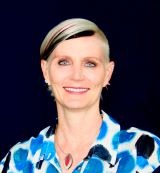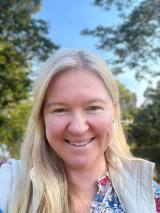Communication partner training for health professionals - part A
Tuesday 8 August 2023, 2–3 pm AEST

Presented by Associate Professor Emma Power and Dr Kirstine Shrubsole
This 2-part webinar will provide an overview of the updated stroke clinical guidelines recommendation for communication partner training for health professionals working with people with communication difficulties following a stroke, and the addition of a communication partner training question in the Stroke Foundation organisational survey.
The content will outline the guideline recommendation, its supporting evidence and provide key practical strategies to enhance clinician’s supported communication skills, enrich the communication environment, and to support embedding the recommendation in clinical practice (implementation).
These introductory sessions are designed for health professionals working with people with post-stroke aphasia and attendees are encouraged to attend both sessions.
About the presenters

Associate Professor Emma Power is an internationally recognised speech pathologist who aims to enhance the lives of people with communication disability and their supporters who have had a stroke, brain injury or dementia.
Her research and practice involve development, delivery and clinical implementation of communication partner training (CPT) programs for family and also staff. She supports clinicians to embed CPT in their practice and has also contributed to the Stroke Foundation living clinical guidelines updated CPT recommendations.

Dr Kirstine Shrubsole is the Conjoint Research Fellow in Speech Pathology at the Princess Alexandra Hospital and The University of Queensland. Kirstine is the co-founder and Deputy Lead of the Collaboration of Aphasia Triallists’ Implementation Science in Aphasia working group, and an adjunct Research Fellow with the Queensland Aphasia Research Centre.
Kirstine has a research focus on improving implementation of evidence into practice in speech pathology and multidisciplinary services, with a special interest in stroke and aphasia rehabilitation. Her research involves collaborating with clinicians to increase capacity to deliver best clinical care and reduce evidence-practice gaps.


